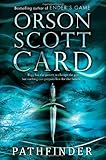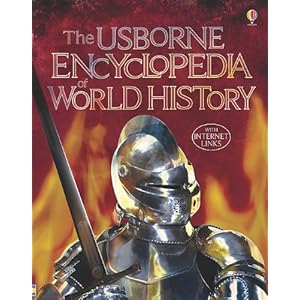 Pathfinder by Orson Scott Card
Pathfinder by Orson Scott CardMy rating: 5 of 5 stars
As seems typical of Card (at least lately), this book is almost more fantasy than science fiction, at least in the beginning. As the story progresses, we see more and more of the sci-fi aspect and the fantasy elements take on a different perspective.
I have yet to "pick up" a Card "book" that I wasn't immediately engaged in, which didn't keep me cleaning my house long after my feet were sore (I only listen to audio versions, and I listen only while cleaning - keeps me motivated). Pathfinder was no different. Rigg's gift, his relationship with his father, and their relationship to the land drew me in quickly, and I was eager to see where it all led.
As the story progressed, new characters were added with rapidity, yet enough was told about each to allow you to connect with them. Never did I feel I learned too much about a character, nor that Card shouldn't have bothered with one at all for what little they added to the story.
By the time the book ends, you care about every one of the characters, and if you've been paying close attention, you have figured out where it's all going. Still it is a relief to actually get there, to hear what resolution there is, and then to read the Acknowledgement section and find out that yes, you did understand it correctly after all.
I'm looking forward to the next book, and hearing what the remaining characters do with their discoveries.
View all my reviews











